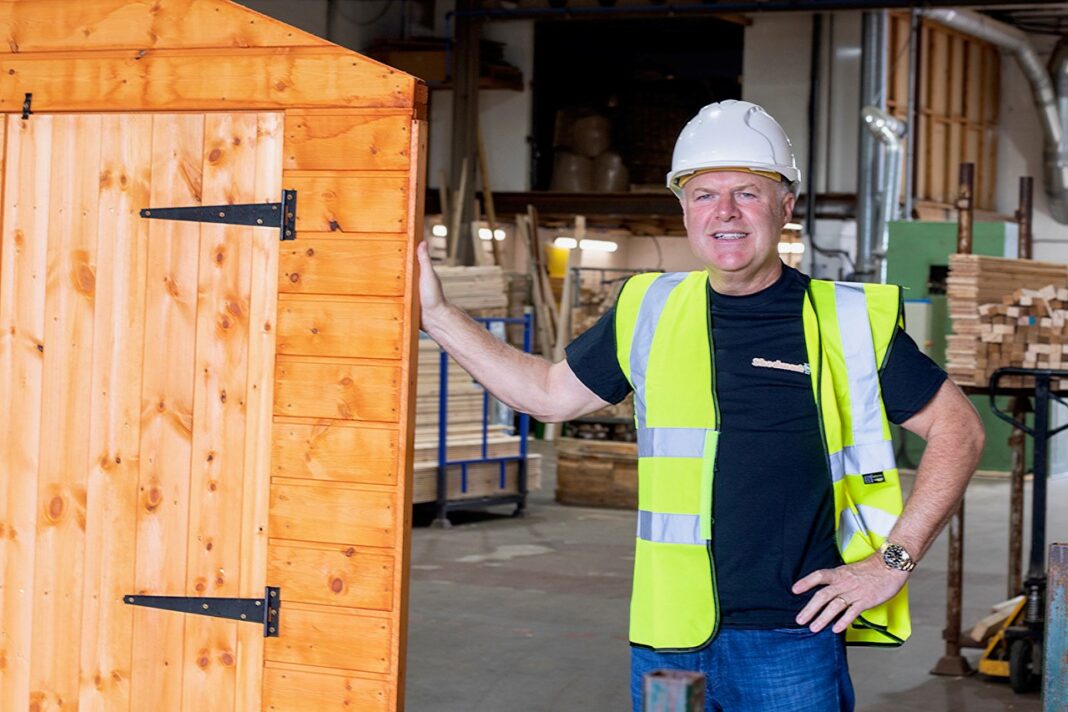
KEY construction stakeholders have urged the UK and Scottish governments to prioritise growth in the upcoming budgets.
UK chancellor Rachel Reeves will deliver the autumn budget on November 26, with the Scottish budget due to be published by finance secretary Shona Robison a month later than usual on January 13, 2026.
Both budgets will likely have major ramifications for Scotland’s construction sector. With that in mind, Project Scotland asked a number of key figures from across the industry what they would like to see contained within them.
Paul Mitchell, operations director at the Scottish Building Federation, said the chancellor should consider measures to facilitate growth, such as reassessing inheritance tax changes and increases to employer NI contributions, which would particularly benefit smaller employers. He added that repercussions from predicted increases to the National Minimum Wage must be carefully considered – including removing the current age bands to create a single adult rate for all workers aged 18 and over.
“Such measures could have a detrimental impact on apprenticeship recruitment. We all want apprentices to be treated fairly, but there is a balance to be struck to keep the apprenticeship model in Scotland economically viable.
“The Scottish Government could also play its part by increasing apprenticeship funding through Skills Development Scotland (SDS) in their January budget. Currently, SDS contributes £8,700 towards craft apprentice training costs but this figure has remained stagnant for years, despite inflationary pressures. Consequently, colleges are beginning to question the future viability of some construction programmes.”

Gordon Nelson, FMB (Federation of Master Builders) Scotland director, also urged no further increase in employers’ National Insurance contributions, stating that along with rises to the National Minimum and Living Wage, the impact of these increases has ‘restricted the recruitment plans of around half of our members’.
“Stagnant apprenticeship funding and rising employer costs will only exacerbate the skills crisis. Builders are finding it harder than ever to recruit skilled workers and the rising costs of doing business are piling pressure on businesses.
“In Scotland, according to the CITB, 3,600 extra workers are needed per year between now and 2029 to meet demand. We need skills and training funding to be prioritised by the Scottish government for the construction industry – targeting SME employers who recruit and train the vast majority of our trade apprentices.”

Fiona Hodgson, chief executive, Scottish and Northern Ireland Plumbing Employers Federation, SNIPEF, said that if the chancellor is serious about the promised growth agenda, she must deliver ‘clear and immediate’ incentives to help businesses raise productivity and competitiveness. “Any new skills funding, particularly for apprenticeships, must guarantee that devolved allocations are ring-fenced for their intended purpose and targeted at high-value and safety-critical careers, including those across the construction and building services trades that underpin the wider economy.
“Employers want to train the next generation, but spiralling costs and a lack of support make this increasingly difficult and unfair. A new social contract is needed where government, employers and apprentices each contribute and share in the rewards. The budget should therefore include tax relief on accredited training and mentoring, government co-investment in off-the-job training, and guaranteed completion bonuses to help employers keep apprentices through to qualification.
“The government must also act to level the playing field for SMEs. Enforce fair 30-day payment terms, impose real consequences for late payers, and ensure small firms are paid first, not last. Finally, delivering on housebuilding and infrastructure promises would bring the certainty and momentum our construction sector needs to invest, grow and support the next generation of skilled workers.”

Glen Small, head of construction and property at Johnston Carmichael, said the construction industry is a cornerstone of Scotland’s economy, but further growth depends on stability, investment, and confidence.
“In both the UK and Scottish budgets, we would like to see a realistic recommitment to housing delivery, infrastructure investment, and energy transition. Incentives that encourage the repurposing of vacant buildings and support for SME developers would help unlock stalled projects and revitalise town centres.
“Tax simplification and consistency, not least around VAT on property and land transactions would reduce uncertainty and improve cash flow. Whilst we continue to assist clients to navigate the complex VAT landscape as things stand, a more standardised approach to transfers of going concerns and when wider VAT reliefs apply would provide stability upon which development works can proceed with less risk of VAT representing an unexpected cost.”

David Owens, MD at High Bonnybridge-based GBSS Civil Engineering, said confidence is the foundation this budget needs to build on. Without it, investment stalls, opportunities dry up, and projects grind to a halt. “Everything in construction – from apprenticeships and investment to sustainability – depends on a confident and resilient economy. Right now, too many schemes are stuck in limbo, paused or cancelled because of indecision at top level. That uncertainty filters all the way down the supply chain.
“At GBSS, we’re seeing clients invest heavily in design and pre-construction activities only to have projects stall which may have been avoided with proper governance in place. We need people in decision-making roles who understand business, not administrators who underestimate the impact of delays.
“If governments in both Westminster and Holyrood wish to restore confidence, get projects moving and show they’re serious about delivery, the whole industry – and the wider economy – will feel the benefit.”

Simone Young, commercial property partner, Thorntons, said that when compared to the overall UK economy, the construction sector is under performing, with very little growth in construction output being recorded in 2025.
“There is growing cautiousness in the sector and a reluctance to invest in new projects, (with) some developers delaying their decision-making until after the autumn budgets in the hope that they may bring a much-needed boost for the sector.
“Confirmation of an increase in public spending on infrastructure projects and on measures aimed at addressing the acute skills shortage currently being experienced by the sector would be very welcome, as would reforms aimed at bolstering the housebuilding sector, such as the abolition of stamp duty in England and Wales, which could lead to the Scottish Government reforming LBTT in Scotland. Such measures would help to cushion the sector against persistent cost pressures, which will only worsen should the much talked about tax increases materialise.”

Alistair Leith, head of submissions at GRAHAM Building, said if the government is serious about driving sustainable development and protecting architectural history, the budget must address the VAT burden on the refurbishment of historic buildings.
“Since 2012, VAT has been applied to the refurbishment of listed and heritage buildings – an approach that actively discourages their adaptive reuse. This policy not only undermines efforts to preserve our architectural legacy, but also makes refurbishment less financially viable than new build. Removing VAT from these projects would be a bold and practical move. It would send a clear signal that the government values sustainability, heritage, and regeneration. It would also help unlock investment in buildings that have too often been left to deteriorate, giving them a new lease of life for future generations.
“Refurbishment is inherently more sustainable than demolition and rebuild. It reduces carbon emissions, conserves embodied energy, and supports local craftsmanship and communities. By incentivising reuse, the government can align fiscal policy with its environmental and cultural commitments.”

Craig Stobo, indirect tax partner at VITA, said that if construction businesses think costs are high now, unfortunately, there is more coming down the track.
“The UK’s version of the Carbon Border Adjustment Mechanism (CBAM) will take effect from January 2027, and it is likely to increase the price of key materials such as steel, iron, aluminium and cement – all essentials for the sector. As domestic carbon pricing rises to align with Europe, those costs will filter through the supply chain, impacting ongoing projects and future financial forecasts. This isn’t scaremongering; it’s the next major cost challenge for construction. Many firms are still to consider the administrative and data demands CBAM will bring, on top of inflation and labour pressures.
“In the forthcoming budget, I would like to see greater clarity on how CBAM will be implemented in the UK – particularly around guidance, timelines, and mitigation. Without that, businesses face yet another unpredictable cost curve.”

Alex Goodfellow, CEO, Donaldson Offsite, said the UK Government’s ambition to deliver 1.5 million new homes will not be achieved unless it creates the right conditions for sustainable business growth and consumer confidence.
“While the industry continues to face challenges, including planning delays, labour shortages and rising costs, two priorities stand out. First, we need a stable, business-focused economy that gives companies confidence to invest. A government with a growth agenda, not a tax agenda, will enable businesses to expand, innovate and create jobs rather than operate under constant uncertainty and pressure. Second, we need stimulus for home seekers and in particular first-time buyers. Targeted incentives such as accessible mortgage schemes or reduced stamp duty would help to support growth in the housing market, driving the demand needed to meet housing targets.
“Business confidence and consumer demand are inseparable. Both are essential if the UK is to achieve its housing ambitions.”

Bryan Wood, senior partner, Accountants Plus, described Scotland’s construction sector as the backbone of our economy – building homes, schools, hospitals and infrastructure that shape our communities. Yet behind that strength lies fragility.
“Many business owners operate on narrow margins and carry high financial risk. Official data show profitability across Scotland’s construction firms has tightened in recent years, while insolvency rates remain high. This is a sector that builds resilience for others but often lacks it for itself.
“Honesty. That’s what business owners need. Political deception with clever manifesto spin has backfired within the construction sector. Investment, expansion, new jobs, wage increases and apprenticeships have been cut or delayed because of recent cost increases mandated by government. Both upcoming budgets must prioritise stability, tax relief for training, and steady investment.”

Zander Muego, director at Thomas & Adamson – part of Egis Group, said the firm is hopeful the UK budget will bring forward planning reform to help get projects moving and improve viability across the board.
“While updates to building safety regulations are well-intended, there’s a risk they could add more cost and delay – what the market really needs right now is stability and less red tape. We’d like to see continued focus on housing development and town centre regeneration, which both play an important role in supporting communities and local economies.
“In Scotland, we expect to see capital directed towards decarbonising the public estate and cladding remediation, areas we’re already very active in, and we are hoping for much-needed investment in healthcare and education projects, where funding has been limited over the past couple of years. These are the kinds of commitments that would make a real difference across the sector.”

Alan Wilson, MD at electrical sector trade body SELECT, said regulation has never been more important. As Scotland drives towards net zero, he revealed the public must have confidence that those installing our electrical and renewable systems are properly qualified.
“That’s why SELECT is continuing to push all political parties to include regulation of electricians in their manifestos ahead of the 2026 elections. Whoever forms the next government must demonstrate a real commitment to safety and to the future of powering our nation by introducing statutory protection of title. Without this, unqualified individuals will continue to put lives, property, and Scotland’s green ambitions at risk.
“We also need sustained investment in apprenticeships to build a pipeline of skilled professionals ready to meet the growing demand for low-carbon technologies. Proper regulation and funded training go hand in hand – together they ensure safety, support growth, and create a competent workforce to deliver a secure and sustainable energy future for Scotland.”

Bill Roddie, MD of Spectrum Properties, highlighted that construction businesses are facing ‘enormous pressure’, with material and labour costs rising dramatically while residential house prices have only increased by 2–3%.
“The margins simply don’t stack up. I’d like to see a return of a Help to Buy-style scheme to stimulate demand and support housebuilders in making a modest, sustainable profit. The planning system also desperately needs reform. It can take 18–24 months to secure planning approval, and up to 36 months from purchase to development completion – far too long in a market that changes quickly.
“At Spectrum Properties, we specialise in restoring historic and listed buildings. Yet since April 2024, councils have removed empty property relief, even for these complex restorations. Charging rates on empty, protected buildings discourages investment. Councils should work with developers, not against them, to preserve heritage and promote growth across Scotland.”

Alison Condie, regional MD of Barratt Redrow, highlighted the growing skills gap in Scotland, which continues to impact delivery at a time when demand for high-quality homes remains strong.
“A recent Scottish Government survey showed that 30 to 40% of construction businesses report worker shortages. More alarmingly, a survey from the Federation of Master Builders (FMB) and the Chartered Institute of Building (CIOB) found that 72% of Scottish firms said the lack of skilled tradespeople saw projects delayed or cancelled in the first half of 2025.
“As one of the largest employers in the construction sector in Scotland, we welcome targeted investment in skills and training, alongside clear, long-term commitments to infrastructure and housing delivery. Certainty and collaboration between governments will be essential to maintaining momentum and ensuring we have the skilled workforce needed to build the homes Scotland requires.”

Gail Matheson, chief executive at Highland Housing Alliance, said pragmatic measures that address barriers facing not-for-profit housing developers are required in both the UK and Scottish budgets to unlock delivery across the Highlands.
“Exemptions from Land and Buildings Transaction Tax and the Additional Dwelling Supplement, where homes are purchased for affordable tenures such as mid-market rent, would help ensure public funding goes directly into delivery, not tax. Investment in utility infrastructure, particularly with providers like SSE, is also essential to alleviate the growing number of projects delayed by limited network capacity.
“We’d welcome reforms to statutory consents, with self-certification for Road Construction Consent mirroring systems already in place for engineers – this could significantly reduce the time it takes to get on site. Finally, incentives to attract people into construction, alongside stronger engagement in schools to highlight the breadth of roles – from trades to surveying – would support long-term industry resilience.”









